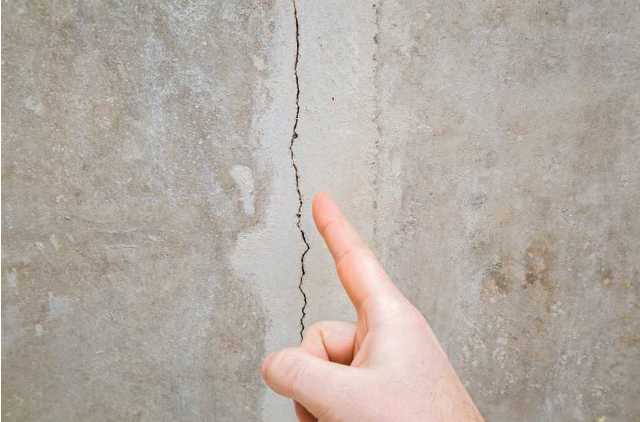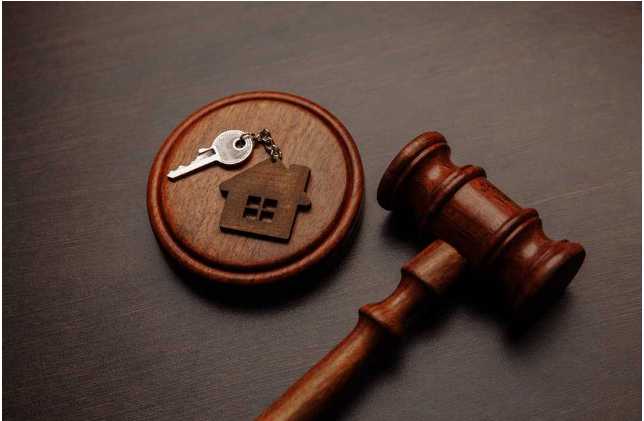
Whether you need simple advice for a transaction or representation in a dispute, a real estate lawyer is available to protect your best interests every step of the way. But how do you find such a legal professional near you?
JuriGo can help you find the right lawyer for your needs! Our partner lawyers are in the real estate business and we can put you in touch with them!
Why consult a lawyer for Real Estate Transactions?
Real estate lawyers are not only trial specialists but also strategic thinkers. That's why it's common for real estate owners to call on their services when closing a major transaction.
Not only is this a strategic move but it also makes a lot of sense in the legal point of view since the lawyer ensures legal compliance at every stage of the negotiation. This is useful for drafting complete and valid offers, counter-offers, and even promises to purchase.
In business matters, the negotiation of a lease is another process that must be entrusted to a lawyer. Once the negotiations are completed, the drafting of the lease must also be entrusted to a lawyer who will also be able to assist you if a disagreement arises in the future.
In the end, the help of a lawyer specializing in real estate law during a real estate transaction assures you of one thing: strict legal security. Since the stakes are always high, do not hesitate to contact a real estate lawyer!
Real estate lawyers’ Rates & Fees: Everything you need to know!

Whether it's a case of a latent defect, a broken promise to purchase, or even a prescription, lawyers are here to help you. But at what cost? This is a question that must be answered before hiring a legal professional.
| Hourly rate of a real estate lawyer | $150 to $300 per hour |
|---|---|
| Case evaluation/ Legal advice | $500 to $1,000++ |
| Sending the notice of discovery (hidden defect) | $250 to $500 |
| Request to initiate proceedings (Hidden defect case) | Up to $1,500 |
Percentage-based lawyer for a latent defect problem?
Damages awarded for latent defects can amount to several thousands of dollars. It can, therefore, be a good idea to find a percentage-based lawyer so you won’t need to take money out of your pocket.
The lawyer’s compensation will simply come from the percentage of earnings if you win the case.
What are the advantages of a real estate lawyer on a fixed price or hourly rate?
The services of a fixed-price lawyer are generally applied to simple cases such as the drafting of a legal opinion, the sending of a discovery of a hidden defect, or other similar process. The "fixed price" method in real estate law is advantageous because it is predictable!
As far as hourly rates are concerned, it is important to know that the majority of lawyers operate in this manner, both in real estate law and in other legal fields. Since fees vary from $150 to $300 per hour, it is a good idea to compare a few offers from professionals before choosing your lawyer.
When and how do I file a claim for latent defect after buying a house?

The recourse for a latent defect is a big part of the work of real estate lawyers. Since substantial damages have been hidden from the buyer, sometimes, even without the seller's knowledge, disputes can quickly escalate. It is therefore crucial for both the buyer and the seller to quickly retain the services of a lawyer.
But is your case really eligible for a latent defect claim? First of all, you should know that in Quebec, every seller is required to respect the legal warranty of quality which assures the buyer that the property is free from defects, both physical and title-related. However, this does not include defects that a "prudent" buyer would have noticed himself or that the buyer knew about.
When the property sold does not have these same qualities, the opportunity for an appeal is open unless the sale took place without a legal guarantee of quality at the buyer's risk.
Such a sale is usually made at a reduced price with the knowledge that the property is not in excellent condition. This can have the effect of depriving the buyer of the remedy of latent defect.
The latent defect is also subject to four conditions in order to exist. The notion of "latent defect" is defined by law and each of the criteria must be met in order for the recourse to be initiated.
- Defect must have existed at the time of the sale of the property;
- Not be obvious or known to the buyer;
- Of a serious and important nature that it renders the property unfit for the purpose it was purchased for
- Be concealed at the time of the transaction
Not everything is crystal clear! Indeed, each of these criteria is likely to be debated by the seller and the buyer when the defect is discovered. This is an excellent reason not to wait before obtaining a legal opinion because on both sides of the transaction, the financial consequences can be significant.
What compensation is available in the case of a hidden defect?

Cases of hidden defects are often supported by significant compensation. This can be good news or bad news, depending on which side of the transaction you are on. But how big are the awards when it comes to latent defects?
Here are some examples of compensation awarded for various real estate defects!
Reduction of the sale price (Lahaie vs. Laperrière)
Cracked foundations and non-conformity of the footing. Compensation granted in the reduction of the selling price: $44,955.
Problem with the French drain causing cracks in the foundation (Khlifi vs. Racine)
Compensation granted as a reduction of the price: $13,859.
Water infiltration, mould in the basement and foundation problem. (Rioux vs. Poiré)
Compensation awarded: $20,349.27
Damages
Misrepresentation and attempt to hide the defect from the buyers. $15,000 in damages, including a reduction of the sale price.
As you can see, reducing the sale price is often the solution!
In the case of a latent defect, the compensation most often granted is a reduction in the sale price based on the costs incurred by the buyer to correct the defect. Such a solution is generally fair and much simpler than cancelling the transaction.
Is it more advantageous to nullify the sale of the property?
Cancelling the sale is a possible remedy, but it is not often advantageous! This is especially true if the buyer has made improvements or renovations or if the house has increased in value. Reducing the sale price is generally a simpler and more advantageous solution for the buyer.
Whatever the defect that has affected your property, it must be reported to the seller without delay, and action must be taken within 3 years!
Quebec law requires that a latent defect be reported to the seller without delay, and above all, in writing! Moreover, a prescription period of 3 years begins to run from the discovery of the defect, so it is important to act quickly with a lawyer in matters of latent defect to protect your right!
Servitudes and right of way: The help of a real estate lawyer is indispensable!
A real servitude is usually defined as the right by one land over another land ant land. The servitude binds the two properties and the owners as well. In reality, servitude can take many forms, such as right of way, right of view, right to draw water, and more.
These are important privileges that are granted to the holder of the servitude and it is not surprising that it is a source of dispute. However, the easement must be followed and not eliminated!
This is why your lawyer will first evaluate the existence of the easement. To exist, an easement must meet certain specific criteria. The first of these is that there must be two distinct parcels of land belonging to different owners, that these properties must be adjacent, that the easement benefits one of these properties and that the servient owner must be bound.
It is also necessary that the easement be validly constituted at the outset by one of the four means provided by the Act. These include a contract, a will, an easement by destination of the owner, and an easement created by operation of the law.
Was the easement in question extinguished? Although validly formed, there is no reason why the easement could not have been extinguished over time. However, there are specific conditions that must be met in order to extinguish an important right such as this.
The first of these is non-use for ten years, followed by renunciation by the dominant owner, by the arrival of the term (if there is one), by redemption or by the consolidation of the servient and dominant lands.
Taking legal action to enforce your rights against the easement? Once your lawyer has evaluated the easement at issue, he or she will be able to advise you on whether or not litigation is really the best course of action for you.
All you need to know about Acquired Prescription

Buying a piece of land or an immovable is not the only way to become an owner in Quebec. Possession can pave the way for ownership based on the principle of acquisitive prescription!
Acquisitive prescription is a way of acquiring a right of ownership through the effects of possession, and through the passage of time. Specifically, a person who owns a property and who presents himself to everyone as the owner can acquire this status, even if does not possess the title.
What are the conditions for prescribing a property?
In real estate matters, it is frequently land that is subject to prescription, although prescription of any real estate is possible. What you need to know is that in the real estate sector, the prescription period is 10 years from the start of possession.
To help you understand, here is a specific example of a prescription situation in real estate law!
For the past 15 years, Mr. Tremblay has maintained the field near his country home. He even grows vegetables and does some gardening there!
He has also built a small shed to store his equipment. In the eyes of everyone, he presents himself as the owner of this same field.
One day, the heirs of the actual owner of the field show up to evict Mr. Tremblay from the field and get their due.
What they don't know is that Mr. Wilson can take advantage of the effects of acquisitive prescription.
By filing a motion in court, Mr. Smith can prove public, peaceful, and continuous possession, making him the owner of the field by prescription!
What to do if you think you have a statute of limitations on a property?
Even after 10 years, the effects of prescription do not apply automatically. In order to officially become the owner of the lot, land, or building, it is necessary to file a motion with the court to formalize this status. It is also possible that the actual owner may surface at this point and contest the application.
This is why the services of a lawyer specializing in real estate law are essential when invoking acquisitive prescription!
Problems with the sale or purchase of a house? Hire a lawyer!
The purchase of a house pits the interests of the seller against those of the buyer.
It is, therefore, not uncommon for relations to deteriorate to the point of litigation. And these are usually the same problems that arise during a real estate transaction!
So what do you do if the transaction turns sour? You turn to a real estate lawyer!
If the seller or vendor refuses to complete the transaction
Has a promise to purchase been signed and the seller or buyer wishes to abort the transaction? Not so fast! The promise to purchase is a preliminary contract that binds the parties, and only the conditions provided for in the promise can allow them to withdraw from it. An action in execution of the passing of the title could be filed to force the sale of the house.
If the seller has sold the house to a third party despite the promise to purchase
When a house is sold to a third party despite a previously signed promise to purchase, the only recourse left is for damages. It will be possible to claim an amount for the losses incurred during the process.
If a defect is discovered following the pre-purchase inspection
What if a pre-purchase inspection revealed a non-negligible defect? In some cases, the outcome will simply be to cancel the transaction or renegotiate the sale price.
However, such a defect can lead to a dispute between the buyer and the seller, especially if one of them wants to close the deal. Once again, the real estate lawyer is there to defend your interests.
Between the time of the first visit to the house and the appointment at the notary's office, there can be a lot of problems. Real estate lawyers are there to protect your interests, no matter what the problem is.
When to contact a lawyer in a real estate dispute?

In addition to appeals for latent defects or to contest an easement, several other situations require the rapid intervention of a qualified real estate lawyer. Acting without delay is extremely important in real estate matters because prescription periods are running and you could lose your right to recourse if you wait too long!
Prescription and encroachment are, therefore, the primary reasons to contact a lawyer, regardless of which side of the dispute you are on. When someone builds a structure on your land, you are entitled to demand, depending on the circumstances, that they remove it or forcibly acquire the parcel on which they are encroaching.
When the encroachment continues uninterrupted for 10 years, you are most likely to have that parcel of land prescribed by that same owner, which could result in the loss of ownership of that immovable. Now you understand why acting quickly is crucial!
When selling real estate, the seller is required to provide a guarantee of ownership confirming that he is the true owner of the property sold and that it is free of defects in title. It is never recommended to buy without such a guarantee, and when such a defect is discovered, contacting a lawyer quickly could save you a lot of headaches.
Non-compliance with a promise to purchase also falls within the scope of real estate law. Although it is only a "promise", it is a valid and binding contract following which it is possible to force the seller or the buyer to conclude the transaction.
This is what the law calls an "action in passing of title" which consists of instituting proceedings to force the buyer or seller who refuses to conclude the sale to do so. If the seller has already sold the house to another person in breach of the promise, a claim for damages may be brought against him.
Disputes over condominiums are also part of lawyers' regular tasks. Moreover, they have even developed an expertise in settling disputes between owners of the same building through mediation.
When it is the co-ownership agreement that is the subject of a disagreement, real estate lawyers can also advise the syndicate and the group of co-owners on the extent of the rights of each. It is even advisable to specifically appoint a lawyer to preside over the meeting in order to ensure that it is conducted in a proper and efficient manner.
Mortgages are also called "accessory" rights to the right of ownership, conferring a direct hold on a property given as security. Whether it is a legal construction mortgage or a mortgage on a house, the threat of foreclosure is real and not a joke.
Whatever real estate situation you find yourself in, seeking the services of a real estate lawyer puts all the chances on your side to resolve the situation effectively!
Contact JuriGo to receive the best offers from our partner lawyers who can help you!
Frequently asked questions about real estate law services

What is the legal value of a promise to purchase in Quebec?
A promise to purchase - or offer to purchase - is considered a preliminary contract. Despite this qualification, this document obliges the parties to conclude the contract at hand, i.e. the sale of the house! Only the conditions set out in the promise to purchase can allow the parties to withdraw from it without prejudice.
Is a real estate broker a qualified professional when it comes to the legal aspects of real estate?
A real estate broker is a professional who can advise clients on many aspects of a home sale, from financing to managing offers. However, he is neither authorized nor qualified to give advice of a legal nature. This is a privilege reserved only for lawyers!
Why use a lawyer BEFORE closing a real estate transaction?
For large real estate transactions, a lawyer's advice can be useful in ensuring that contractual agreements are compliant. A lawyer is also an excellent advisor and a fine negotiator. This expertise can be very useful in real estate matters.
In which court should you bring your real estate dispute?
Real estate cases can be brought before several courts in Quebec and it is the amount claimed that will dictate the jurisdiction of the court. The Court of Quebec has jurisdiction to hear cases where the amount claimed is less than $85,000 while the Superior Court hears cases where the value exceeds this threshold.
What are the advantages of filing in Small Claims Court?
The Small Claims Court has jurisdiction to hear cases worth $15,000 or less. The advantage of taking your real estate dispute to Small Claims Court is that you save on legal fees and you benefit from a simplified procedure as lawyers are not allowed in this court.
JuriGo helps you find a real estate lawyer
Are you ready to start the legal process for your real estate issue or transaction?
JuriGo is here to help you. Our network of partner lawyers serves the whole of Quebec province so we can put you in touch with real estate lawyers anywhere you are!
Don't let a hidden defect ruin your investment or an easement problem ruin your life: trust real estate experts to resolve your problem.
To get in touch with them, all you have to do is fill out the form at the bottom of the page.
We guarantee that you will receive an offer from a lawyer in your area using our platform. This service is free and no-obligation!